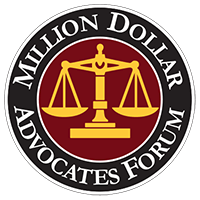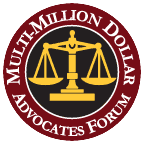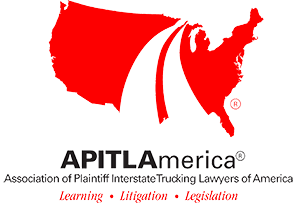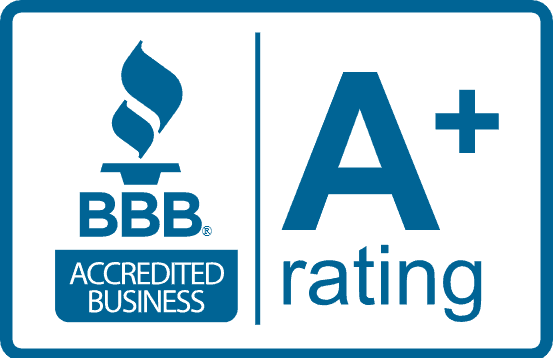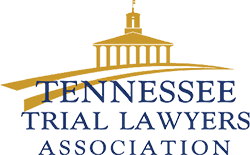Motorcycle riders rarely get the respect they deserve on the road. This can create very serious risks. People may not see a motorcycle rider until it is too late. Even when they do see a motorcycle, they may inadequately assess what is a safe operating distance to keep between the vehicles. This can lead to motorcyclists being run off the road or having cars or trucks pull out in front of them when it is too late to avoid a collision.
If you or someone you love is suffering serious injuries after a motorcycle accident in Clarksville, TN, turn to the team at Pete Olson Injury Attorneys. Our Clarksville motorcycle accident lawyer can help you fight for the compensation you deserve.
Motorcycle Accidents by the Numbers
- 4,985 motorcyclists died in roadway crashes in the United States in 2018 alone.
- Motorcyclists are roughly 28 times more likely than people in passenger vehicles to die in a crash.
- The proportion of fatally-injured motorcyclists age 50 and older has dramatically increased over time, jumping from 3% of all rider deaths in 1978 to 37% in 2018.
- Most motorcycle-related fatalities occur on weekends after 6 pm.
The Most Common Causes of Motorcycle Accidents
Statistically, some of the most common causes of motorcycle crashes are:
- Excessive speed (either of the motorcyclist or another motorist)
- Failure to properly check for motorcyclists when changing lanes
- Drunk driving
- Failure of a motorist to stop in time in stop and go traffic
- Failure to notice motorcyclists who are lane-splitting
- Failing to yield to the motorcyclist in an intersection where they have right-of-way
.jpg)
How Can You Prevent Motorcycle Accidents?
As a motorcyclist, there are certain steps you can take to help prevent being in an accident:
- Wear appropriate safety gear including a helmet (see below), reflective or bright-colored gear, long sleeves or pants, etc.
- Do your best to always be seen by other motorists; honk if you aren't sure a motorist sees you and keep your headlights on during both the day and evening.
- Stay alert and always anticipate that other motorists may not be paying attention; be prepared for sudden stops, swerving drivers, and other road hazards
More often than not, motorcycle accidents are the fault of the other driver. If you have been injured as a result of another motorist's negligence, you deserve compensation.
Do You Have to Wear a Motorcycle Helmet in Tennessee?
In Tennessee both the rider and passenger are required to wear a motorcycle helmet that meets federal DOT requirements while riding. There are some exceptions where a rider doesn’t have to wear a helmet, but they are situational.
Aside from it being required by law in Tennessee, wearing a motorcycle helmet is a good idea. Helmets will reduce the risk of a head injury like a concussion or a traumatic brain injury. When you’re on a motorcycle, you’re much more vulnerable to being injured if you get into an accident compared to people in a vehicle. People in vehicles have a lot more protection around them, whereas someone on a motorcycle only has the gear they’re wearing to protect them. A helmet will also protect you from debris like rocks, dust, or other things kicked up from vehicles.
Obstacles Faced by Injured Riders in Montgomery County, TN
Recovering from your injuries after a motorcycle crash in Clarksville, TN, can be a long and painful process that will place a difficult financial burden on you and your family. Medical bills and lost wages can create financial uncertainty for even the most prudent households.
You deserve to be fully compensated for all your losses. At Pete Olson Injury Law, our Clarksville motorcycle accident attorney understands how to build highly effective cases that can secure the compensation you are seeking.
You've got a tough road ahead if you were seriously injured in a motorcycle crash in Tennessee. Some of the challenges you will likely face include the following.
Catastrophic Injuries
First and foremost, you’ll need access to prompt medical care and a way to pay for surgeries, treatments, and ongoing therapy.
Without the safety of having two tons of car or truck wrapped around them, motorcycle riders are exposed to the full force of impacts with other vehicles, trees, light posts, and the road.
That exposure can lead to incredibly severe injuries such as:
- Traumatic brain injuries (TBI)
- Spinal cord injuries (paraplegia, quadriplegia, partial paralysis)
- Neck and back injuries
- Amputations
- Broken bones
- Road rash
Bias and Stereotypes
Motorcycle riders are sometimes unfairly stigmatized, with a common perception that they are reckless or aggressive. This bias can influence how witnesses, law enforcement, and even jurors perceive the circumstances of the accident. Overcoming preconceived notions in court can be challenging. Jurors may be less sympathetic to motorcyclists, making it harder to secure a fair verdict or settlement.
Inadequate Insurance Coverage
If the at-fault driver has insufficient insurance coverage or is uninsured, it can be difficult to obtain adequate compensation for the astronomical medical bills and other losses a biker can suffer in a crash. Even if a driver has Tennessee's minimum required coverage of $25,000 in bodily injury liability per person and $50,000 per accident, they likely won't have sufficient funds to pay for a seriously injured biker's losses.
Comparative Negligence
The defendant's legal team may attempt to shift some blame onto the motorcyclist, arguing that their actions contributed to the accident. It is not uncommon for the insurance company to want to pin at least some of the blame on the biker for the simple fact that they have chosen to ride a motorcycle. This can reduce the amount of compensation the rider is entitled to.
Complex Investigations
Motorcycle accidents in Tennessee often require thorough investigations to determine fault and liability. Proving negligence may involve collecting witness statements, analyzing skid marks, and reconstructing the accident scene. Attorneys who do not routinely take motorcycle accident cases will not be familiar with the special circumstances that surround these types of crashes.
Disputed Liability
Disputes over liability can arise when the at-fault driver denies responsibility for the accident. Claims of "I didn't see the motorcycle" or "The biker didn't get out of my way" are just excuses for negligent driver behavior. Proving the driver's negligence is crucial to holding them liable.
Overcoming these obstacles is not easy, but our experienced motorcycle accident lawyer in Clarksville, TN, can build a strong case, gather evidence, challenge bias and stereotypes, and advocate for the injured party's rights.
Common Reasons of Motorcycle Accidents in Clarksville
Approximately 40 percent of motorcycle crashes are single-vehicle crashes—meaning the biker lost control and hit the pavement or crashed into a tree and has no one to blame but him or herself. However, 60 percent of crashes involve another vehicle. Negligent car drivers can cause serious crashes with motorcycle riders through a range of unsafe behaviors and actions. Some common ways these crashes occur include:
- Failure to yield. Car drivers often fail to yield the right of way to motorcycles at intersections, during lane changes, and while making left-hand turns, leading to collisions.
- Distracted driving. Using mobile phones, adjusting in-car entertainment systems, or engaging in other distracting activities can divert a driver's attention away from the road, making them less likely to notice motorcycles.
- Speeding. Excessive speed reduces a car driver's reaction time, making it difficult to respond to sudden movements or unexpected actions by motorcyclists.
- Impaired driving. Driving under the influence of alcohol or drugs impairs a driver's judgment and coordination, increasing the likelihood of accidents with motorcycles.
- Following too closely. Tailgating or following motorcycles too closely reduces the driver's stopping distance, making it more challenging to avoid rear-end collisions.
- Unsafe lane changes. Failing to check blind spots or using turn signals inadequately can lead to accidents when drivers change lanes and fail to see motorcycles in their path.
- Ignoring traffic signals. Disobeying traffic signals and stop signs can result in broadside collisions at intersections, where motorcycles are particularly vulnerable.
- Opening car doors. "Dooring" occurs when car occupants open their doors without checking for oncoming motorcycles, causing riders to collide with the door.
- Sudden right turns. Car drivers making sudden right turns without signaling or yielding can cut off motorcycles traveling in the same direction.
- Road rage and aggressive driving. Aggressive behaviors, such as tailgating, weaving in and out of traffic, and challenging motorcyclists, can escalate tensions and lead to accidents.
- Fatigue. Drowsy drivers are less attentive and may drift into adjacent lanes, potentially colliding with motorcycles.
- Unpredictable maneuvers. Drivers who make unpredictable lane changes, abrupt stops, or sudden U-turns can catch motorcyclists off guard.
- Failure to check mirrors and blind spots. Neglecting to check mirrors and blind spots during lane changes or turns can result in drivers overlooking approaching motorcycles.
These negligent behaviors can have severe consequences for motorcycle riders, often resulting in serious injuries or fatalities. The first thing a driver often does after a collision with a motorcycle is blame the biker for not being more visible or not avoiding the crash. In this situation, the injured biker will need someone in their corner to protect their claim while they are being treated for serious injuries.
The Lifelong Costs of a Serious Motorcycle Accident Injury
When a motorcycle accident occurs, the consequences to the rider can be devastating, especially if the rider sustains a serious injury. Beyond the immediate physical and emotional toll, these injuries can lead to substantial long-term and even lifelong costs. Those costs can include the following.
- Medical Expenses. One of the most significant long-term costs of a serious motorcycle accident injury is medical expenses. The initial hospitalization, surgeries, rehabilitative therapies, and ongoing medical treatments can accumulate into astronomical bills. In some cases, injured riders may require lifelong medical care, further increasing the financial burden.
- Rehabilitation and Therapy. Extensive rehabilitation and physical therapy are often necessary to regain lost mobility and function. These services can be required for an extended period, sometimes for life, and can be costly.
- Medications and Assistive Devices. Some motorcycle accident victims may need long-term medication to manage pain or other medical conditions resulting from their injuries. Additionally, they may require assistive devices like wheelchairs, prosthetics, or home modifications to accommodate their disability.
- Loss of Income. For many motorcycle riders, their ability to work and earn a living is compromised due to their injuries. Lost wages and diminished earning capacity can result in a substantial financial setback over the course of a lifetime.
- Home and Vehicle Modifications. In cases of severe injuries, individuals may need to adapt their living spaces and vehicles to accommodate their disability. These modifications can be expensive and may become necessary lifelong adjustments.
- Psychological Impact. The emotional toll of a serious accident injury can have a long-lasting impact, leading to conditions like post-traumatic stress disorder (PTSD) or depression. Mental health treatment and counseling are often necessary.
- Loss of Quality of Life. Motorcycle accident injuries can result in a diminished quality of life, impacting the ability to engage in previously enjoyed activities and hobbies. This loss is difficult to quantify but carries immense personal significance.
- Family and Caregiver Costs. Severe injuries may necessitate the assistance of family members or professional caregivers for daily activities, increasing the financial and emotional burden on both the injured individual and their loved ones.
- Ongoing Medical Monitoring. Lifelong medical monitoring may be required for some injuries, which can include routine check-ups, diagnostic tests, and medical consultations.
.jpg)
Why You Should Hire an Experienced Motorcycle Accident Attorney in Clarksville
Seeking accountability from the negligent driver who caused the accident is vital for alleviating these long-term and lifelong costs. Through a personal injury claim, motorcycle accident victims can pursue compensation to cover medical expenses, lost income, rehabilitation, pain and suffering, and other associated costs. Seeking legal recourse and holding the negligent driver accountable for their actions is not just about obtaining compensation; it is about securing the financial resources necessary to rebuild and reclaim one's life, ensuring that the injured rider can face the future with greater confidence and security.
At Pete Olson Injury Attorneys, our firm brings decades of experience and a record of success for each client. Our motorcycle accident attorney in Clarksville has successfully resolved thousands of cases and obtained multimillion-dollar verdicts and settlements for our clients. Attorney Pete Olson understands the difficulties people face after serious accidents, and he is committed to helping people get through those tough times.
Our Clarksville Motorcycle Accident Lawyer Will Fight for Tennessee Bikers Injured by Negligent Drivers
At Pete Olson Injury Law, our firm is committed to helping people secure the compensation they need to put their lives back together after a devastating motorcycle accident. Attorney Pete Olson has more than 25 years of experience and has built a record of success by obtaining favorable results in thousands of cases and multimillion-dollar settlements and verdicts.
You do not have to face the challenges of life after a catastrophic motorcycle accident without support. Instead, turn to Pete Olson Injury Law. Fill out our online contact form by clicking the button above or call 877-GET-PETE today to schedule your free case review.








